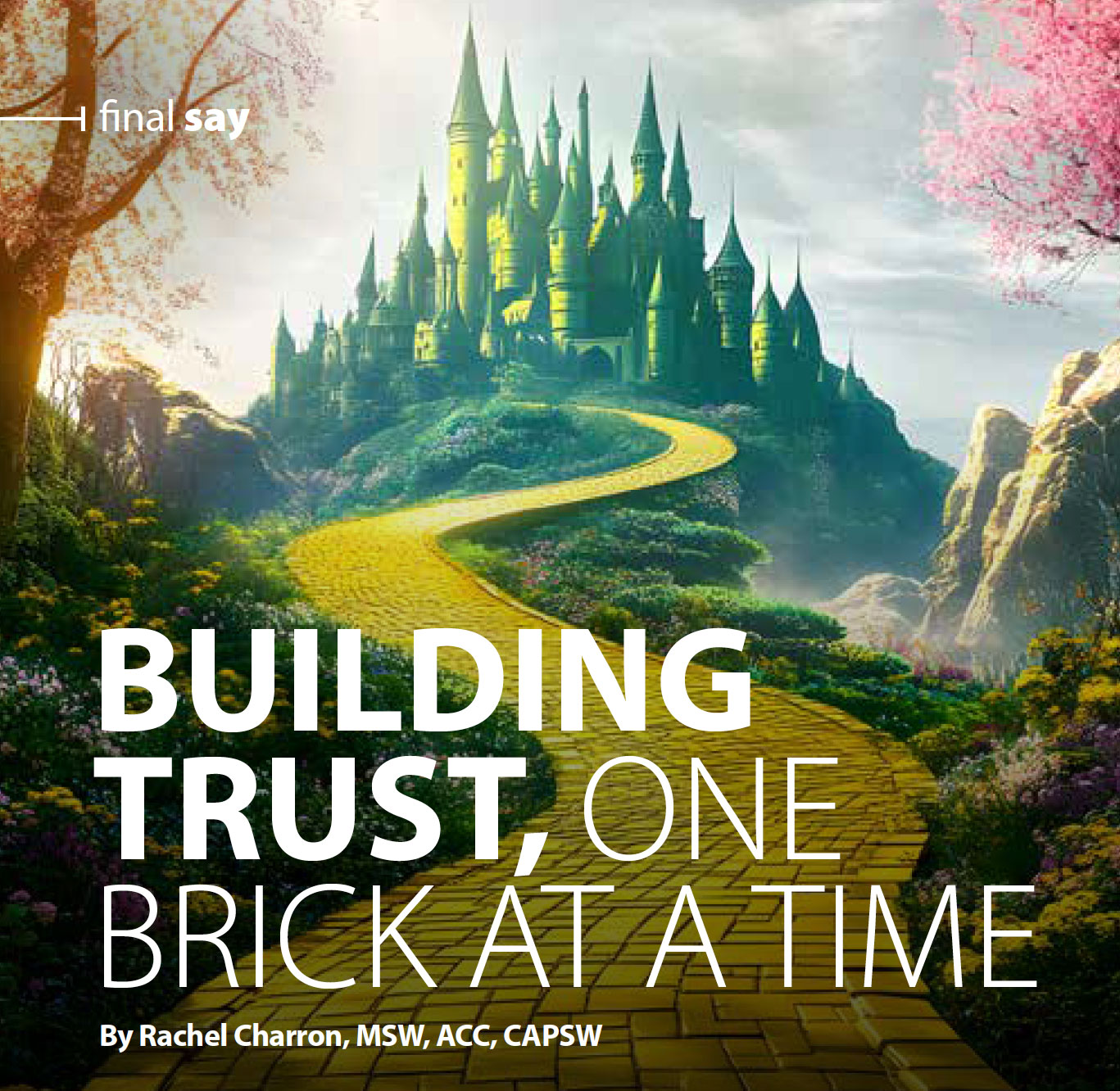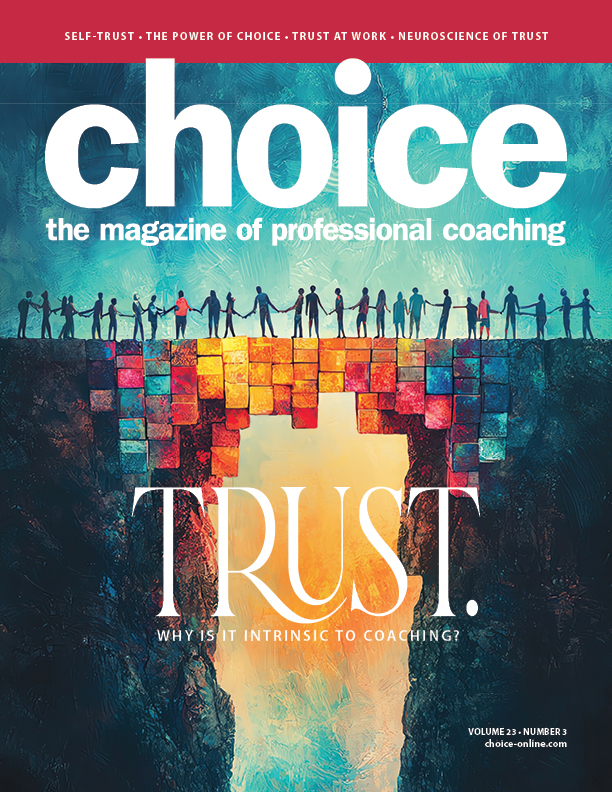

As I was heading out of the house one morning, my young children were chatting at the breakfast table, their conversation drifting toward the story of The Wizard of Oz. My husband, knowing my childhood love for the tale, turned to me and asked, “What was it that all the main characters were searching for again?”
I was instantly transported back to second grade and blurted out that the Tin Man longed for a heart, the Scarecrow sought a brain, and the Cowardly Lion was desperate for courage. Then my adult mind came back online, and I added, “But the thing is, they had those qualities all along; they just didn’t recognize them yet. They should have called up a coach to help them—then they wouldn’t have had to worry so much about the Wicked Witches or the Great Oz.”
Amused by my own oversimplification, I carried the thought with me as I stepped out the door. It dawned on me that not only did this shortcut strip the story of its magic, it also failed to capture what coaching is truly about. Coaching isn’t about handing people the answers or fast-tracking them to success; it’s about walking alongside them as they navigate their own winding journey, discovering the heart, soul, and strength already within them.
There is no way to bypass the winding and uncharted yellow brick road. This realization illuminated the essence of trust in coaching.
Trust isn’t built through some illusion of greater knowing – like the man behind the curtain – but through patient support as our coaches pave their own path.
Much like Dorothy’s companions, coaches often believe they are missing something essential and external that they must find before they can fully become themselves. Yet, just like the Tin Man, Scarecrow and Lion, they already possess the very qualities they seek – their journey is about recognizing them.
These relatable characters are not simply handed what they desire. They explore new worlds and take on challenges. They realize only through vulnerability and the support of their friends, that they were never lacking wisdom, courage, or a heart in the first place.
Building trust in coaching relationships also requires coaches to let go. Just as Dorothy had to release her belief that Oz held the key to her return home, coaches must let go of their own assumptions about what a client needs. Coaching thrives in curiosity, not certainty. If we ask genuinely curious questions, if we stay present and reflective, we allow clients to see themselves more clearly. They can then shed their limiting beliefs and uncover the qualities that were always within them. This thought stayed with me as I arrived on campus that morning, isn’t about handing people the answers or fast-tracking them to success; it’s about walking alongside them as they navigate their own winding journey, discovering the heart, soul, and strength already within them.
This thought stayed with me as I arrived on campus that morning, humming Somewhere Over the Rainbow and glancing at my coaching calendar. I saw each student who would walk into my office that day as their own version of Dorothy—each with a different story, a different struggle, yet all yearning for clarity, hope, or confidence. My role wasn’t to hand them their answers but to walk with them, listen, and trust in their ability to find their way.
With this foundation, the question, “Why then, oh why can’t I?” transforms into something more self-assured for coaches: “How can I, and how will I?” And just like Dorothy standing in her ruby slippers, every coach eventually arrives at the realization that the power to improve their lives was theirs all along.
This article was written by Rachel Charron, MSW, ACC, CAPSW, for choice Magazine and reprinted with permission.

